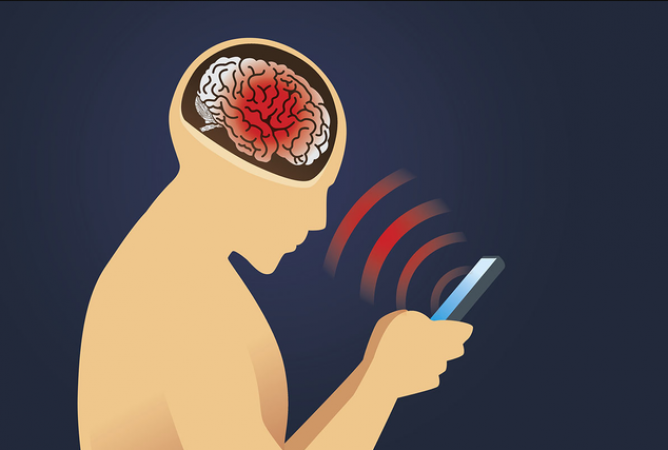
New Delhi: Smartphones emit non-ionizing radiation, specifically radiofrequency (RF) radiation, which is a form of electromagnetic radiation. RF radiation is considered to be relatively low-energy compared to ionizing radiation (such as X-rays and gamma rays) that can damage DNA and cells.
The specific absorption rate (SAR) is used to measure the rate at which RF radiation is absorbed by the body when using a mobile device. SAR values are typically measured in watts per kilogram (W/kg). Regulatory bodies around the world have established SAR limits to ensure that smartphones and other wireless devices operate within safe levels of RF radiation exposure.
Smartphone manufacturers are required to test their devices and provide SAR information to ensure compliance with regulatory standards. The SAR value of a smartphone can usually be found in the device's user manual or on the manufacturer's website.
Also Read: Who is Linda yaccarino? upcoming CEO of Twitter
It's important to note that extensive research has been conducted on the potential health effects of RF radiation emitted by smartphones. So far, the scientific consensus is that the RF radiation emitted by smartphones within regulatory limits does not cause adverse health effects. However, research in this area is ongoing, and it's always a good idea to follow the guidelines provided by manufacturers and regulatory authorities to minimize potential exposure.
If you have concerns about radiation exposure from smartphones or any other electronic devices, it's best to consult reliable sources such as government health agencies or scientific studies for the most up-to-date information and guidance.
Also Read: Centre invites research proposals in the coal industry
Radiation effects on Human body
The potential health effects of mobile phone radiation, specifically radiofrequency (RF) radiation, have been the subject of extensive scientific research. While the majority of studies have not found conclusive evidence linking RF radiation from mobile phones to harmful effects on human health, it's worth noting that some studies have suggested possible associations with certain conditions. However, the overall scientific consensus is that the RF radiation emitted by mobile phones, when used within regulatory limits, is unlikely to cause significant harm to the human body.
The International Agency for Research on Cancer (IARC), which is part of the World Health Organization (WHO), has classified RF radiation as "possibly carcinogenic to humans" (Group 2B). This classification is based on limited evidence of an increased risk of glioma, a type of brain cancer, associated with mobile phone use. However, it's important to note that this classification does not imply a strong or definite link, and further research is still being conducted to better understand any potential risks.
Additionally, some studies have explored potential non-cancer-related effects, such as the impact of RF radiation on brain activity, sleep patterns, and fertility. While some studies have reported minor effects, the overall scientific consensus is that these effects are generally not significant enough to cause harm under typical exposure conditions.
Regulatory bodies around the world, such as the Federal Communications Commission (FCC) in the United States, set guidelines and limits on RF radiation emissions from mobile phones to ensure they operate within safe levels. By complying with these guidelines and using mobile phones as intended, the potential health risks associated with RF radiation exposure are minimized.
Also Read: Meta announces tests of generative AI as tool
If you have specific concerns about mobile phone radiation or want to learn more, it is always advisable to consult reliable sources such as government health agencies, scientific studies, and organizations dedicated to researching the topic.